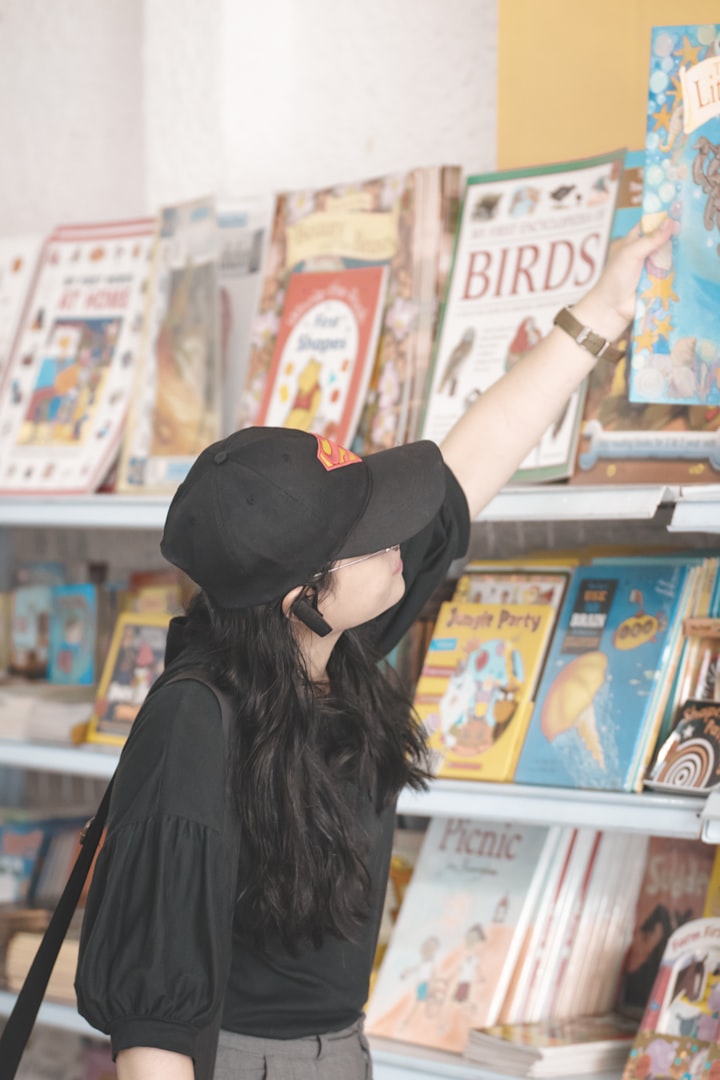Message From Long Ago

A Message from Long Ago
“Just pack your bags and move out then,” Walter snarled as he turned back to the huge stack of bills on the table. “You and I both know we’re done for. You want out, just go.”
“Don’t you get it? We BOTH have to move out!” Beth shouted. “I’ve seen the letters from the mortgage company along with all the rest of that nightmare pile. We surely are done for in every way. Even if you do find a new job, we are so far under water that we’ll be foreclosed on in just a couple of weeks. I’ve already asked Barbara if I can stay in her guest room for a while. My suitcases are in the trunk of my car. You better pack too, instead of just staring at all those bills we can’t pay. Now I am going to start on the attic you have never cleaned out like you said you would,” Beth snapped, pulling on her jacket and slamming the door to the garage behind her.
In just a few minutes she had pitched enough flattened storage boxes from the garage into the kitchen to fill the entire room. She stomped inside, threw off her jacket, grabbed a stack of boxes, a roll of strapping tape and a Sharpie, and headed to the back hallway. Groaning dramatically, she pulled down the ladder which led to the attic, clambered up the rickety stairs, yanked on the light cord, and began tossing boxes into the middle of the dusty remains of twenty years of marriage.
In less than an hour she had managed to pitch most of Walter’s aged sporting equipment, clothing, shoes, and an amazing number of faded golf umbrellas into a pile that he could bloody well deal with himself. She then boxed up the kids’ old toys and games to donate along with nearly all of her dated clothes and shoes. She was surprised by the number of books that had made their way into the mix and was tempted to take them all with her. But many of them were books that her mother Cecile had brought with her when she and her family moved from Paris to America. Beth could speak and read passable French, but she did not much enjoy stirring up memories of the harsh and critical woman who had never forgiven her husband for marooning her in the Midwest. Cecile had been bitter and resentful that her brothers had ended up in New York City while she got stuck in Ohio, where her husband Allen, a true workaholic, thought she should be content with a house, a country club membership, and a gaggle of bridge-playing lady friends. Home was never a happy place for Beth growing up; and while she and Walter had spent some of their early married years companionably enough, once their kids were gone and he lost his job, their home life had rapidly deteriorated. And so, with enough other unpleasant things to deal with already, Beth dumped all of Cecile’s French novels into a separate box. Maybe she could give them to the Alliance Francais where they could be of use to the language students.
One book, though, caught her eye, and she pulled the little black leather notebook out of the pile. She had never seen it before and was struck by the softness of the fine leather, then by the inscription on the first page, written in flowing, old-fashioned script on delicate rice paper, brittle with age. It was a dedication to “Ma Chere Cecile.” Carefully separating the sheets, Beth realized she was holding a sketch book, filled with exquisitely wrought miniature studies of hands, lips, and eyes; stunning full portraits that she was certain were of a young and beautiful Cecile; and some marvelous street scenes. At the middle of the book was a highly detailed piece titled “ L’Avenue Victor Hugo,” which was where Cecile’s Parisian home had been located. Several of the more finished sketches were signed “Dumont.” Realizing that she had in her possession something lovely, extremely fragile, and possibly of value, Beth gently closed the book, wrapped it in an old pillowcase, and headed down to the kitchen.
Beth immediately put in a call to her friend Sinclair Minten, one of the curators at the Museum of Fine Arts. Minutes later she threw on a blazer, ran a comb through her hair, and headed out. She gently placed the swaddled book on the seat next to her and drove downtown to meet with Sinclair, who had breathlessly hypothesized that perhaps this was a sketchbook of Fernand Dumont’s work and that she simply MUST come to the Museum right away.
Sinclair and several others including the rare manuscripts expert were waiting at the front door of the Museum; they led Beth to a comfy couch where tea and pastries had been put out for her. Sinclair put on his spotless white gloves, gently unwrapped and opened the book, looked through the first few pages, and in a hushed tone said,” This is remarkable. We will be back!” and the group scurried off, whisking the book away to a research room where they conferred for over an hour.
When he returned Sinclair was positively glowing, extending a folder to Beth while his assistant carefully deposited the book, now cradled in a protective linen-lined plastic box, on the table in front of her; he looked genuinely pained to have to let it leave his hands.
“Beth, dear, we are so pleased to be able to tell you, with a very strong degree of certainty, that this is a sketch book of works by the renowned Fernand Dumont, who worked in Paris during the middle part of last century. The signatures appear to be an exact match to the two paintings we have here in the Museum, and I have already sent copies of them to my colleague in New York, who is the undisputed expert in Mid-Twentieth Century French Neo-Impressionist work. We need to do some age dating and type certification on the paper, graphite, and pastels -- all rigorously supervised and in accordance with best practice for authentication -- but we feel confident that you have brought us a fine little treasure. Any offer for purchase will have to wait upon the results of more thorough research, but we would be honored to keep it here under lock and key if you will sign these temporary transfer papers. No promises, my dear, but I think we will be making you a handsome offer. In the meantime, though, we think you will be most interested in the letter that we found tucked in between the latter pages. We did not take the liberty of translating and reading it, but it is addressed to the same Cecile to whom the book was dedicated -- and who, if I am remembering correctly, was your late mother.”
“This is all so amazing. I hardly know what to say,” Beth stammered, holding the letter in shaking hands. “Of course I will leave the book with you. And I am going to go over to the Alliance Francais right now. It has been a long time since I have read any French -- I want to be sure that I get a completely accurate translation of this letter. I can’t wait to see what it says!”
Later that day, having worked with a translator at the language school, Beth sits with her best friend Barbara, sipping wine and marveling over the possibility of the Museum’s purchase but even more over the content of the artist’s letter to her mother.
My darling Cecile
I write this letter with a heavy heart, as I know it is not the answer you are hoping for. Nor,
is it the answer I would like to give you. In different circumstances I would greet the news
of your pregnancy with joy . To be a father again, and with you, my angel,
should be the perfect result of our perfect love. But ours is not a perfect world. I cannot
leave Marie and the children. As you well know, her health is precarious, and my work
does not produce adequate funds to be able to provide for her and the care of Albert
and Henrietta, let alone to give you and our baby the kind of life you so greatly deserve.
You have your adoring and adored parents and brothers; you have countless other suitors
to choose from. I cannot tell you how deeply I regret that I cannot be father to our
child or husband to you, but I send you this little book to remind you of me.
All of my love always,
Your Fernand
“Gosh, Barb, I am just flabbergasted. Allen isn’t my real father, my real father was a Parisian artist who adored my mother but wouldn’t marry her. What do I do about this? It makes me feel lost.”
“Well, sure, this is quite a lot to absorb, eh?” Barb said sympathetically. “ But you know, it explains a lot, too. Your Mom was always so miserable. I mean, who wouldn’t be unhappy living in Ohio instead of Paris! But seriously, if this guy really adored your Mom and she felt the same, got pregnant but had to find another father for you, and THEN wound up in Ohio with a guy who had no interest in anything besides going to the office, she must have been hanging onto a whole lot of big hard feelings for a whole lot of years. No wonder she was always so cold and mean to pretty much everyone but especially to you. You represented the guy who wouldn’t keep her.”
“You’re right. This changes everything. I know when Cecile came to America, and I know when I was born. Allen MUST have known she was pregnant -- quite pregnant, actually -- when they got married. But he married her and he stayed with her and he took care of her. . . and he took care of me. The artist just gave Mom a little sketchbook. Help me, Barb! I have to think this through,” Beth sighed as she sank back into the couch pillows.
The two friends distracted themselves with manicures, makeup do-overs, baking, and lots of talk for the next two weeks. Finally, the call came, Sinclair’s news greeted by a loud “whoop” from Beth and applause from Barbara. The Museum’s Acquisition Committee had decided to make Beth an offer of $20,000.00 for the book! Her check was waiting.
“Oh, my. I should call Walter right now. He needs to know that at least we are out of the woods financially. But I am too excited!” Beth exclaimed as she hugged Barb and jumped into her car to go to the Museum. “It is so amazing that this can keep the wolves from our door. The bigger thing, in some ways, though, is that knowing the real story behind my birth has made me see my own relationship differently. Thank you so much, Barb, for listening to all my jabber; it has really helped me put things into perspective.”
Later, as the overhead garage door to her house opened, Beth was greeted by the look of shock on Walter’s face as he stood before the neatly stacked and labeled boxes of everything from the attic.
“Come get my suitcases from the trunk, Walter. And take a look at this, “Beth said as she got out of the car and held the check before her husband’s widening eyes. “I am back, at least for now, and I think we have a great deal to talk about.”





Comments
There are no comments for this story
Be the first to respond and start the conversation.